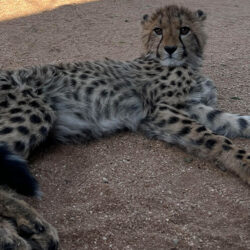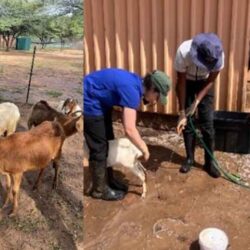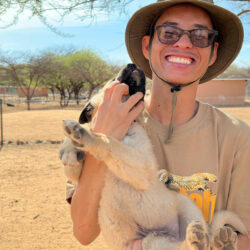Intern Story – Time Spent in Nature is Never Wasted Time
-
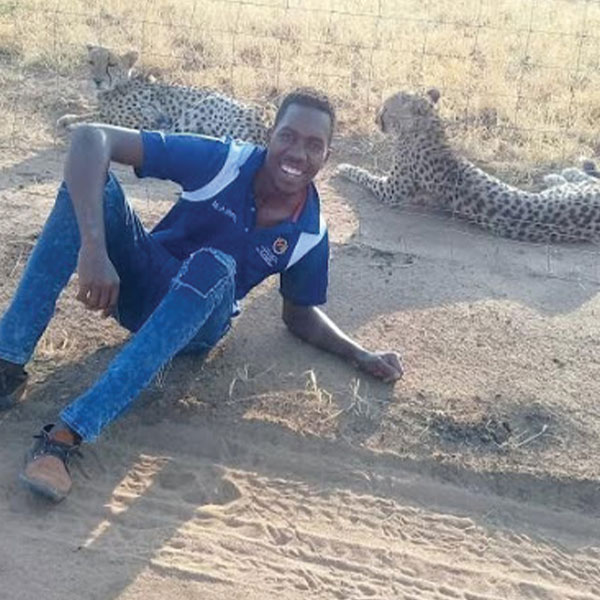
- by Petoorua Mberirua August 26, 2021
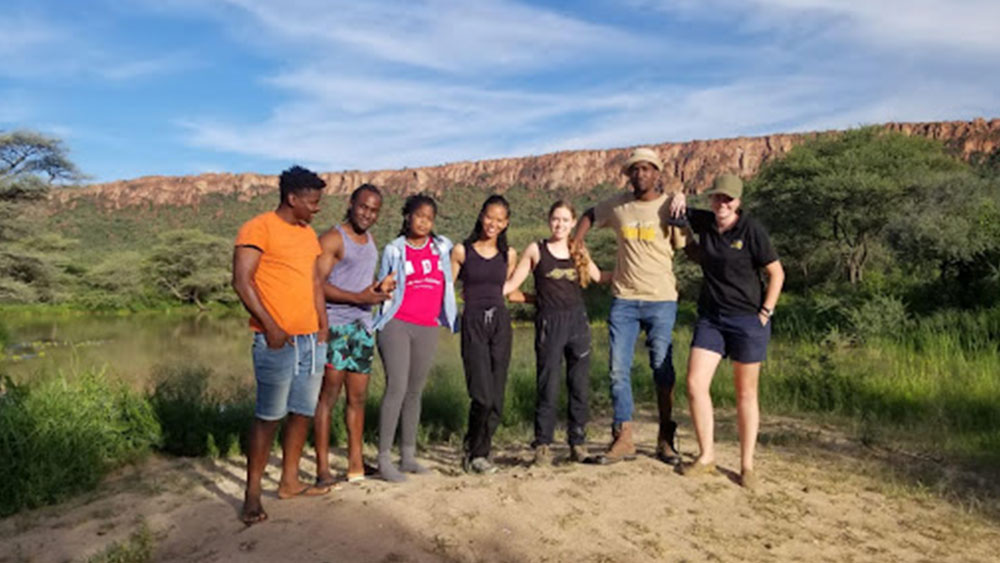
Since I was a child, I have always been astonished and passionate about nature. Having spent much of my childhood on the farm, and in nature while helping take care of my family livestock, I can truly say that time spent in nature is never wasted time. When I was in my last year of high school, I made the decision to study a course at university that would equip me with the knowledge and skills to understand and conserve our natural environment. The following year I enrolled for a Bachelors of Natural Resources Management in Nature Conservation at the Namibia University of Science and Technology (NUST). Things got pretty interesting when my class started going on excursions to different places in Namibia. These trips reaffirmed my love for nature and the wild, and gave me an idea of what conservation is about.
Things got even more interesting during my third year when I got accepted to join CCF, for a six months internship. My internship at CCF was a great experience. I met many wonderful people who helped me a lot in learning new things, developing new skills, and inspired me to gain more knowledge in all three areas at CCF: research, education and conservation.
What really caught my attention is that here at CCF, they practice what they preach; I learned that they had a Model Farm with goats and sheep to showcase that indeed wildlife and livestock can live together when there are good management practices in place. Coming from a farming background and also as an aspiring farmer, I knew that I was at the right place.
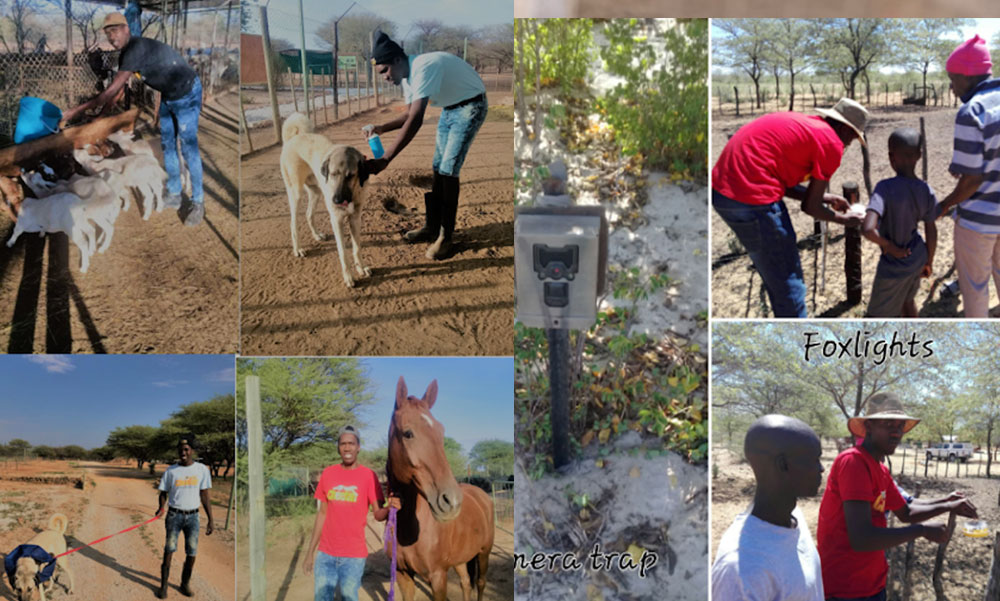
During the first few weeks of my internship, I was assigned a research project as part of the requirements for my study program on Habitat Suitability Assessment for Carnivores in the three Okakarara (Namibia) Communal Conservancies. This was a great opportunity for me, as the project was not only based at CCF, but also in the communal areas CCF works in. I come from one of the communal areas CCF works in, and this really added to my excitement for this project. I completed my research successfully and passed with a distinction, all thanks to my mentor, tutor and CCF professionals without whom this achievement would not have been possible. Apart from my research project, I helped a lot with all other general tasks at the CCF Research and Education Centre such as; game counts, setting up camera traps in CCF’s wildlife reserve for monitoring, cheetahs feeding, horses, dogs, goats and sheep care.
A few months after graduating, I came back to CCF to assist in their Ecology and Community Development departments. I assisted in educating and training communities how to mitigate human-wildlife conflict (HWC) using non-lethal methods and strategies. Some of these methods and strategies involve; educating farmers about the importance of vaccinating their domestic dogs and cats against rabies – CCF provides rabies vaccinations to communities at no cost to them, encouraging farmers to have a herder or a livestock guarding dog, or both, high pitched sound emitting E-shepherd collars fixed around the neck of small stock to deter predators, and Fox lights fixed on kraal posts to keep predators away from the kraal at night.
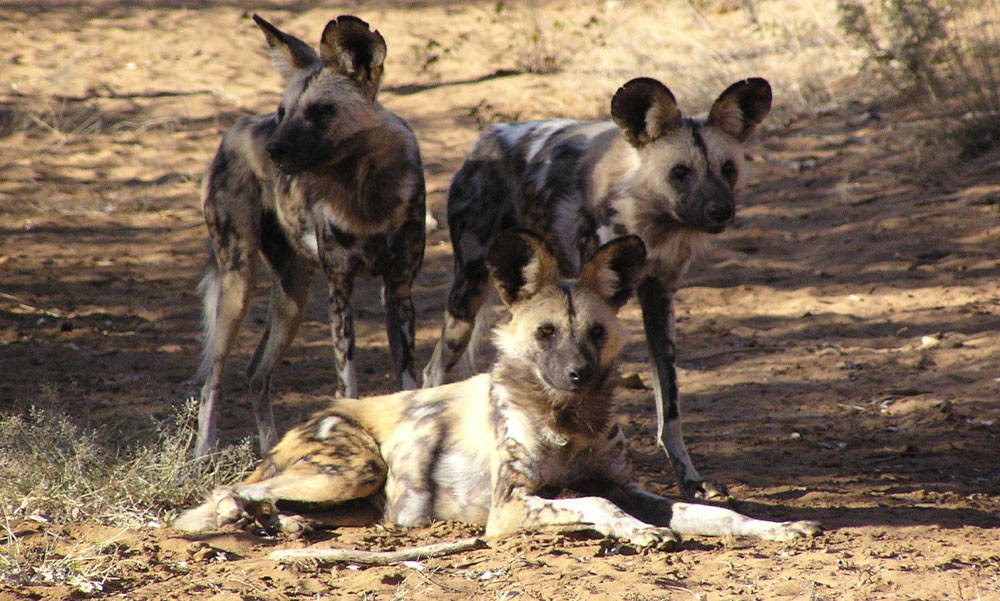
The biggest challenge communities face in the communal areas CCF works in is African wild dogs. From June – November 2020 I was fortunate to be part of the team that set up camp in one of these areas to respond to sightings of African wild dogs, and to further support these communities with HWC issues. Providing non-lethal mitigation options to conflict with African wild dogs is very challenging because of how these predators take down their prey – they hunt any time of the day and will start eating their prey while it is still alive. To reduce conflict as much as possible, we work on building relationships with and amongst community members so that they can communicate with one another and with us.
We work very hard with communities to find best solutions to ensure the future of the African wild dog population in this region. Long term solutions such as collaring will make it easier for us to monitor their activities and behaviour, and then alert farmers as early warning system. Discovering a vigorous conservation balance that compliments the needs of people is significant to securing wildlife and their deteriorating habitats. The work I do here at CCF has inspired me to pursue a career in conservation, especially working with communities in HWC mitigation. I look forward to going out into the communities and sharing with them strategies that help reduce HWC.
Related Reading
-
September 30, 2025
Brendy’s Story: Honoring My Dad with the Cheetah Conservation Fund -
December 3, 2023
Paws, Prints and DNA: Chronicles of a Genetics Intern

